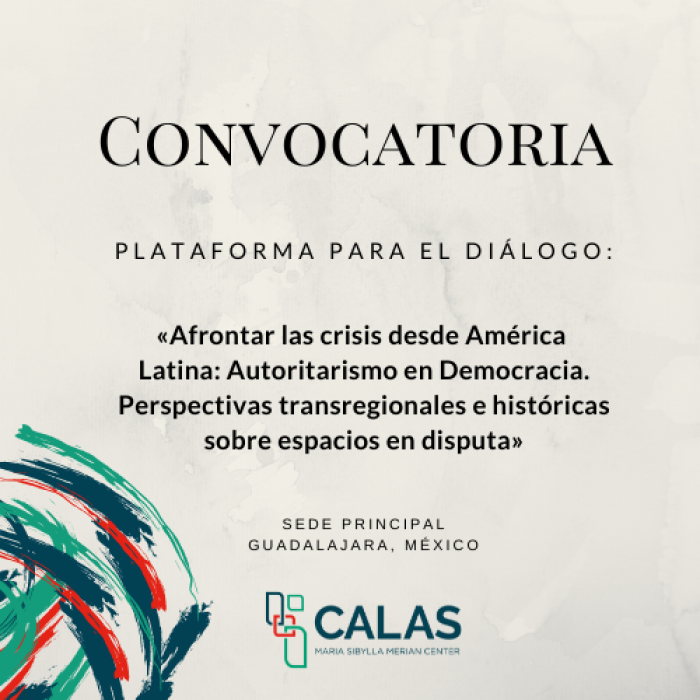In Latin America in recent years, electoral processes have given rise to the political legitimation of actors and forces that promote antidemocratic discourses and values. Although to different degrees and despite highly varied national and regional dynamics, democratically elected officials have promoted an authoritarian turn in institutionalized social relations, the State. Two examples are Jair Bolsonaro in Brazil or, recently, Nayib Bukele in El Salvador. In Ecuador, the government of the former president, Lenín Moreno did not hesitate to declare a State of Siege in October 2019, mobilizing the military forces to violently neutralize citizen protests against its austerity policies. Harsh practices of repression and abuse of the public force have been visible in Chile and Colombia, where conflicts between the state and citizens have turned the street into a field of confrontation despite the urgent need for isolation caused by the coronavirus pandemic. The problem of the coexistence between democratic processes and authoritarian practices also finds its empirical expression in the restructuring of electoral systems to ensure long-term elitist interests, the issuance of presidential decrees and laws that limit freedom of the press, or freedom of meeting and/or coalition. The use of legal and even constitutional sources to neutralize parliamentary opposition and the manipulation of the judiciary to exclude opponents of certain mandates has been observed in the case of the Lava Jato anti-corruption system in Brazil. Similar efforts have been made in order to cover up crimes of the economic and political elite, the expansion of police and military powers, the legalization of parastatal forces and militias, as has happened repeatedly in the case of Colombia, or the exclusion of the “non-citizen” migrants of political and social participation, are examples of the integration of authoritarian elements in democracy.
Proponents of the authoritarian turn, depending on the level and type of radicalism, suggest treating opponents through laws that limit their actions, but most of the time, openly promoting political imprisonment or the use of physical violence, including fantasies of destruction and annihilation - often against indigenous leaders and populations who defend ways of life incompatible with the unlimited pursuit of economic growth in the sensitive ecosystems of the Amazon and in localities monopolized in favor of the construction of large infrastructures. The construction of images of "threat" as well as the persecution and murder of political leaders and social or environmental activists is far from being incidental, casual, or sporadic. On the contrary, these phenomena have been developing a largely unexplored system of ideological, political, and, in some cases, organizational interconnection. This emerging network of anti-democratic sentiment and action does not stop at the national border; its political traces are rather transnational in quality and scope. Against this background, it is analytically inadequate to understand the relationship between democracy and authoritarianism exclusively within the borders of the nation-state and only from the current political conjuncture.
The workshop proposes to explore the relationship between the crisis of democracy in Latin America and the readjustment and privatization policies of the last three decades, from transregional perspectives. Some reasons for the authoritarian turn stem from colonial legacies that still shape largely unbalanced and deeply unequal social structures, reflected, among other things, in the extreme concentration of land that led to centuries of wealth accumulation, and long-lasting schemes of political power with little external control. Failure to recognize the complex processes of mutual interconnection and constitution rooted in the history of political struggle in the 'South' and between the 'South' and the Global North would stand in the way of the scientific debate on the new authoritarianism.
Based on these premises, the present initiative that we have called “Facing crises from Latin America: Authoritarianism in Democracy. Transregional and historical perspectives on disputed spaces”, its main objective is to develop a space for dialogue, reflection, and analysis from different approaches, methodologies, and disciplines on the convergence between democracy and authoritarian elements in terms of their transregional connections and their scaling scope. We invite contributions that focus on the study of spaces of interdependence and that deliberately seek or address multidisciplinary dialogue between political science, geography, (urban) sociology, and empirically-based global history.
- Political crisis in Latin America and the legacy of the Cold War
- Dispute Sites: Authoritarian Responses and Spatial Differentiation
- Authoritarianism and capital flows: between neoliberalism and developmental state
- Security, control, borders: authoritarian and dynamic spaces multi-scalar
- Decolonial perspectives on authoritarian and violent dynamics of economic and transnational appropriation of nature
The strategies of social movements, initiatives, and non-state actors will also be analyzed to face the multiple forms that the new authoritarianism takes, strategies that often go beyond the nation state.
Bases
- The call is aimed at applicants from the Social Sciences, Humanities, and History who can contribute with reflections in relation to the central theme of the platform.
- Fill the online application format that includes the title and abstract (250-300 words), as well as a brief academic record of the applicant (professional career and relevant publications)
- Proposals can be submitted in Spanish, Portuguese, and English
- An academic committee will select the works under the criteria of excellence.
Deadline for submitting proposals: November 14, 2021
Communication of results: December 4, 2021
In the case of the event being held in a face-to-face format, CALAS will take care of the accommodation costs. There will be limited resources for travel expenses, depending on the pandemic conditions at the time.
Contact:
Maria Sibylla Merian Center for Advanced Latin American Studies (CALAS) - CALAS headquarters in Guadalajara / Mexico
General Management: Dr. Jochen Kemner
Scientific Coordinators:
- Dr Alke Jenss (Arnold-Bergstraesser-Institut Freiburg),
- Dr Javier Alemán (Universidad Interamericana de Puerto Rico),
- Dr. Fabricio Rodríguez (Friedrich Schiller Universität Jena)
C.E.: info@calas.lat o merian.calas@gmail.com


